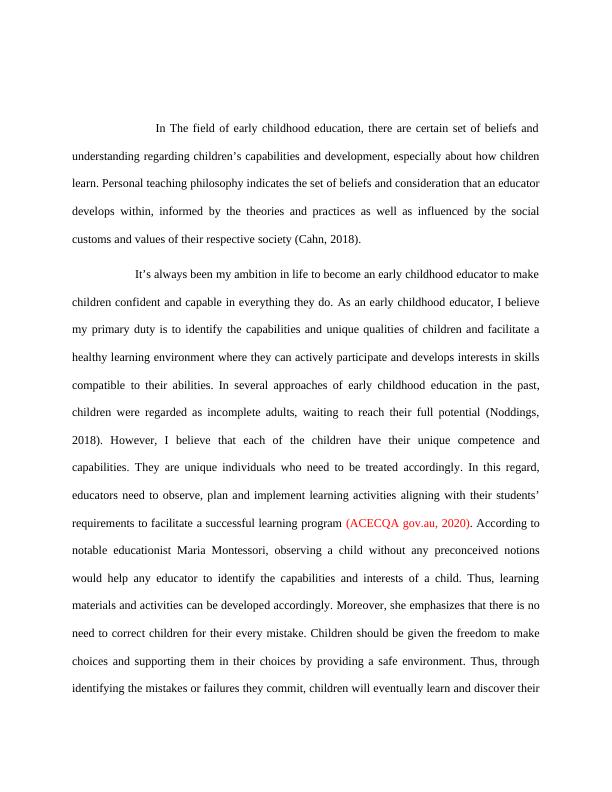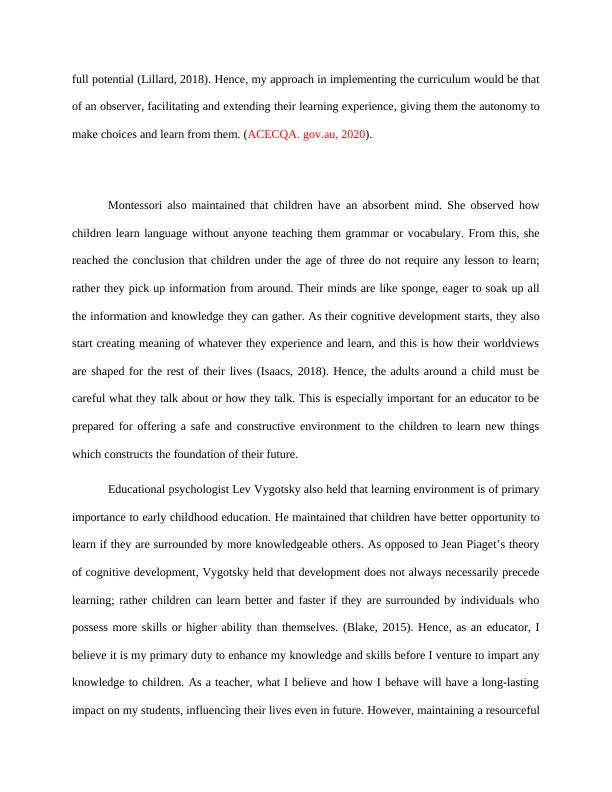Personal Teaching Philosophy Assignment Report
Write a personal philosophy relevant to working as a teacher in early childhood education, covering understandings and beliefs about young children and how they learn, effective pedagogies for the early years, and ethical and professional roles and responsibilities of the early childhood teacher. Use theories such as Piaget and Vygotsky to support statements and reference them. Discuss beliefs, provide evidence from literature, and culminate in strategies for practice that align with AITSL professional standards and ACECQA standards.
Added on 2022-08-23
Personal Teaching Philosophy Assignment Report
Write a personal philosophy relevant to working as a teacher in early childhood education, covering understandings and beliefs about young children and how they learn, effective pedagogies for the early years, and ethical and professional roles and responsibilities of the early childhood teacher. Use theories such as Piaget and Vygotsky to support statements and reference them. Discuss beliefs, provide evidence from literature, and culminate in strategies for practice that align with AITSL professional standards and ACECQA standards.
Added on 2022-08-23
End of preview
Want to access all the pages? Upload your documents or become a member.


